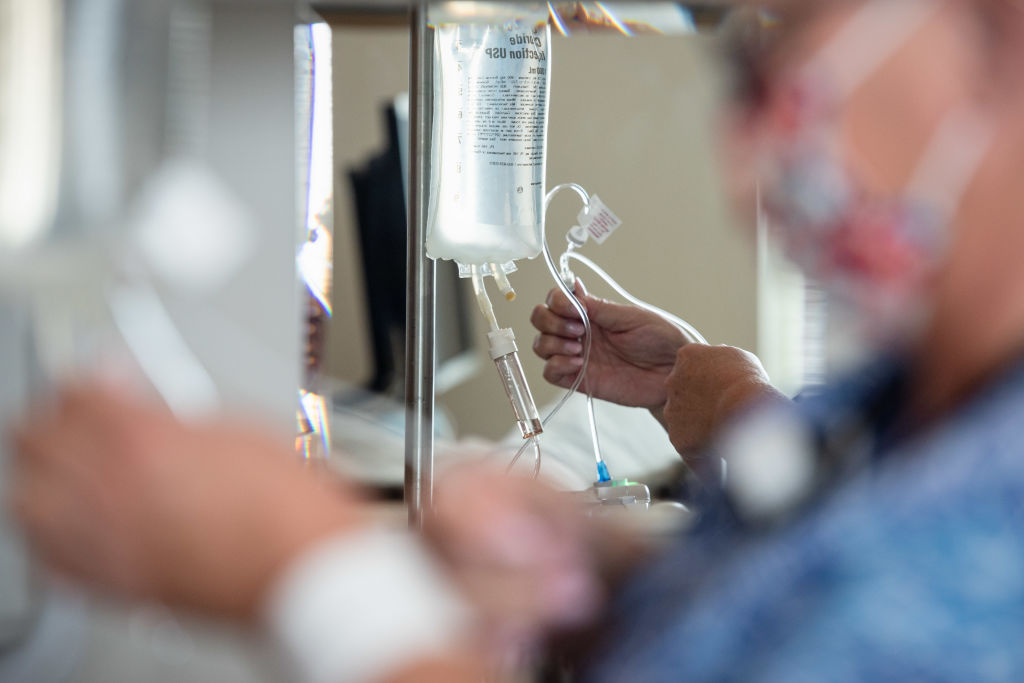
November 20, 2023
Massachusetts Hospital Faces Legal Battle After Possible Exposures To HIV, Hepatitis
A legal battle is underway after nearly 450 patients at a Massachusetts hospital may have been exposed to infectious diseases over two years.
A legal battle is underway after a Massachusetts hospital reported that nearly 450 patients may have been exposed to hepatitis B, hepatitis C, and HIV over two years.
On Nov. 16, a Massachusetts hospital spokesperson revealed that the potential exposure resulted from “improper administration” of IV medications at Mass General Brigham, Salem Hospital, NBC News reported. The hospital learned about the matter earlier this year and notified hundreds of patients via the hospital’s online portal or email.
“We sincerely apologize to those who have been impacted, and we remain committed to delivering high-quality, compassionate health care to our community,” the hospital said.
Nearly 450 patients at Salem Hospital in Massachusetts may have been exposed to Hepatitis B, Hepatitis C and HIV due to improper administration of their IV medications, a hospital spokesperson says. https://t.co/R5R3LMvkE6
— NBC News (@NBCNews) November 17, 2023
The statement explained that patients who received an endoscopy between June 2021 and April 2023 were possibly exposed to infectious diseases during the administration of IV medications “in a manner not consistent with our best practice,” according to the Boston Herald.
An endoscopy is a non-surgical procedure for doctors to examine the inside of a patient’s body for several reasons. It serves as an early detection method for certain types of cancers or other diseases, such as gastrointestinal (GI) bleeding, chronic inflammatory bowel diseases (IBD), and ulcers.
Adam Bagni, the hospital’s director of external communications, told NBC News that there is an “extremely small” chance for patients to be infected.
Following the warning, the Keches Law Group said they received calls from frenzied patients who were “extremely concerned and anxious” and felt “betrayed.
“Let’s keep in mind, these are vulnerable people,” attorney Jeff Catalano said. “These are people who have undergone an endoscopic procedure for a very specific reason. That reason being that they have some medical complication … that is potentially on its own life altering and potentially life threatening.”
Out of the 450 patients, no data has been released on demographics. But these infections greatly impact the Black community, which represents 5.2% of the Salem population and beyond. For example, the American Cancer Society found that African Americans are about 20% more likely to be diagnosed with colorectal cancer and about 40% more likely to die after being diagnosed, as compared to most other groups. In addition to a colonoscopy, other endoscopic procedures may be used to diagnose colorectal cancer.
Although Black people represent almost 13% of the U.S. population, they accounted for 42.1% of HIV infection cases in 2019, as reported by the Office of Minority Health. Data shows that Black women were about 15 times as likely to die from HIV infection as white women and Black men were six times as likely to die from HIV infection as white men.
Furthermore, in 2020, “non-Hispanic Blacks” were 1.4 times as likely to die from viral hepatitis in comparison to whites. In addition, they were almost twice as likely to die from hepatitis C than the white population.
Ketches Law filed a class action lawsuit against Salem Hospital and 10 employees on behalf of an Amesbury woman. The firm said the plaintiff “suffered permanent injuries, additional testing requirements, extreme anxiety, emotional distress, and decreased quality of life due to potential exposure to these infections.”
We've filed a #ClassAction lawsuit against #MassGeneralBrigham on behalf of patients who may have been exposed to HIV and hepatitis. Endoscopy patients at #SalemHospital from June 2021 to April 2023 can contact us to join the lawsuit. https://t.co/qON0ByzuLz
— Keches Law Group (@KechesLaw) November 17, 2023
As of Nov. 16, “there is no evidence to date of any infections resulting from this incident,” the hospital said.
The state Department of Public Health is conducting an onsite investigation, with the hospital offering standard tests to correct the issue.